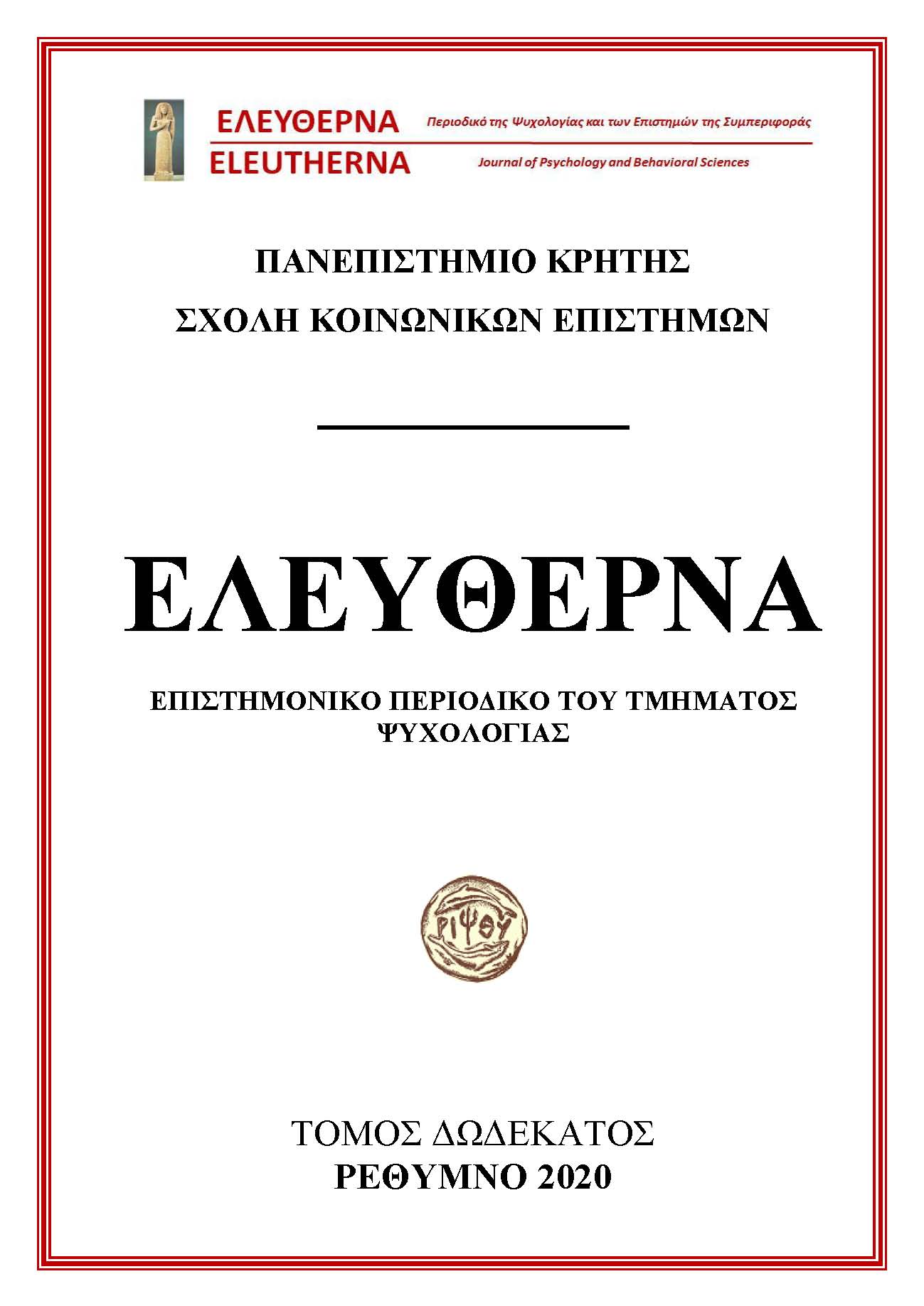The remembrance of parental acceptance-rejection and its effect to psychological well-being
DOI:
https://doi.org/10.26248/eleutherna.v12i0.1541Keywords:
parental acceptance-avoidance, adult attachment, interpersonal style, well-beingAbstract
The purpose of this study was to examine the effect of perceived parental acceptance-rejection in childhood on psychological well-being during adulthood, but also whether this effect is mediated through other factors such as adult attachment and the interpersonal profile test. The study was conducted on 729 students of whom 344 were men and 384 were women with a mean age of 21 years. The self-report scales used gathered data around demographics, recalled parental acceptance-rejection, adult attachment, interpersonal style, and psychological well-being. The results showed that adult attachment mediates the relationship between perceived parental acceptance-rejection and psychological well-being with the effect of the dysfunctional detachment having a greater effect than the destructive overdependence. Finally, the only interpersonal style that proved to act as a mediating factor was the healthy dependency. Findings contribute to the further understanding of the degree, but also of the way in which the acceptance-rejection by parents during childhood can affect the psychological well-being of the individual in later stages of lifespan.
Downloads
Published
How to Cite
Issue
Section
License
This work is licensed under a Creative Commons License Attribution-NonCommercial-ShareAlike 4.0 International (CC BY-NC-SA 4.0).
Under this license EJPBS provides immediate open access to its content on the principle that making research freely available to the public supports a greater global exchange of knowledge.


